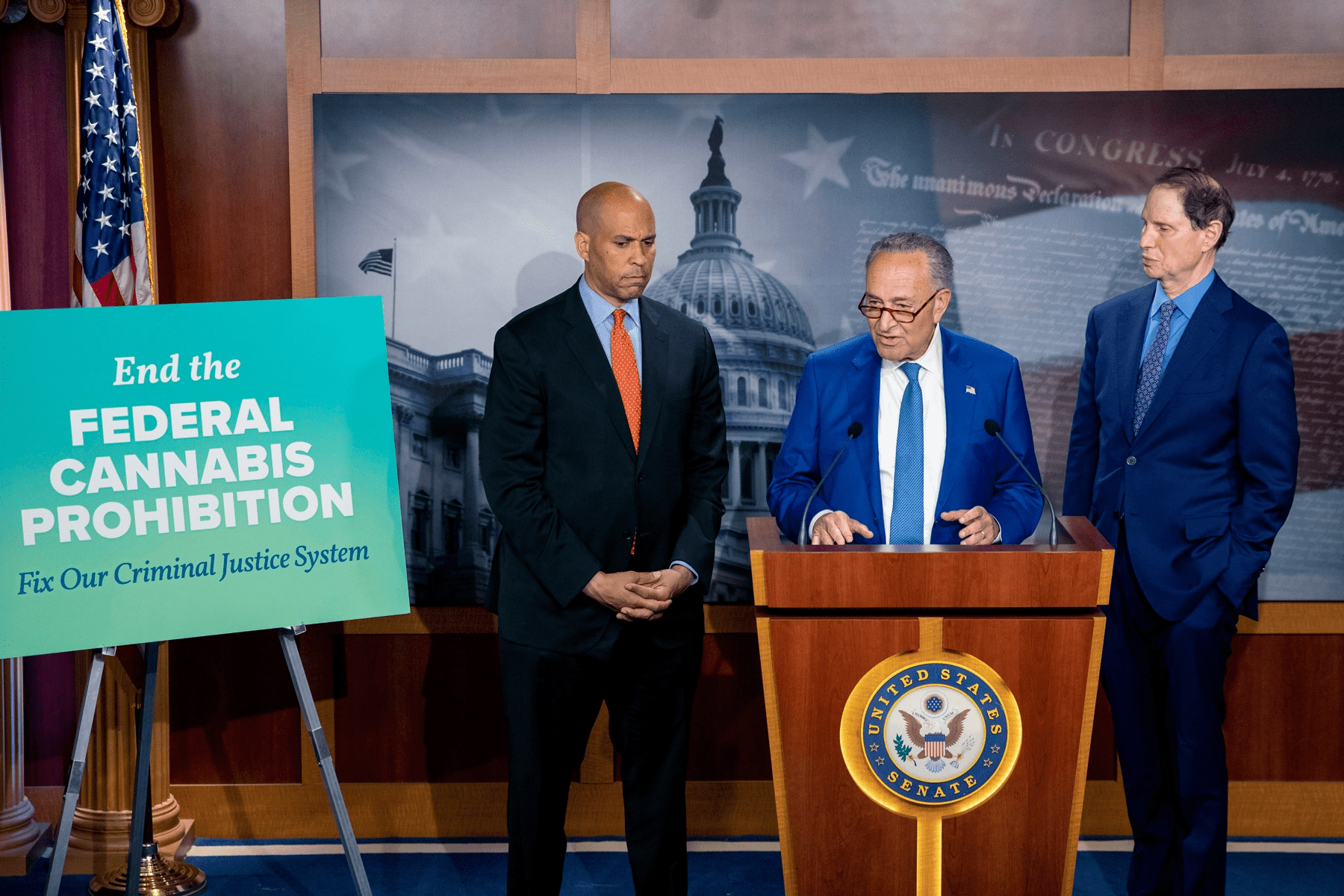INDUSTRY UPDATES
August 10, 2022
U.S. Hemp Roundtable Recommendations To Lead Sponsors Of The CAOA

Last Friday, the U.S. Hemp Roundtable sent a letter to lead sponsors of the Cannabis Administration Opportunity Act (CAOA), Sens. Chuck Schumer, Ron Wyden, and Cory Booker, applauding the bill’s introduction while offering recommended changes to provisions within the legislation that could significantly undermine the hemp industry. Read the full letter here.
The Roundtable’s General Counsel, Jonathan Miller offered two key critiques:
Re-Defining Hemp: When Congress passed both the 2014 and 2018 Farm Bills, it sought to define hemp as the non-intoxicating genus of the cannabis plant. At that time, the standard benchmark for intoxication was considered to be 0.3% delta-9 THC on a dry weight basis. In the succeeding years, intoxicating products that technically comply with this standard have been sold under the guise of the hemp name and have proliferated. Some contain significant quantities of potentially intoxicating compounds such as delta-8 THC; others contain highly concentrated delta-9 THC, purporting to contain less than 0.3% on a dry weight basis. The Ninth Circuit Court of Appeals has confirmed the legality of many of these products, arguing that “if Congress inadvertently created a loophole legalizing vaping products containing delta-8 THC, then it’s up to Congress to fix their mistake.”
The CAOA intends to address this mistake, a mission that we support: We believe that intoxicating products should be regulated in adult-use cannabis markets, with retail hemp product sales limited to non-intoxicating substances. However, in addressing this issue, the CAOA develops a misguided standard for intoxication that would lead to the elimination of the substantial majority of the hemp extract and CBD industry.
- The language at issue states that the allowable THC equivalent amount for products made or derived from hemp could not exceed 1 milligram of total THC per 100 grams on a dry weight basis, translating into a 0.001% total THC standard. This is an arbitrary and unrealistic standard. No full spectrum or broad-spectrum hemp extract would qualify, and likely most CBD isolates would be challenged to comply, given the limitations of current testing technology. Indeed, this limit would delegate most, if not all, popular, non-intoxicating CBD and hemp extract products to the adult-use cannabis market.
- While staff has assured us that the language is not intended to criminalize such products because it would apply in the context of full legalization of all cannabis, the proposed THC limit as drafted would impose a devastating setback to a thriving industry, and further limit opportunities for already struggling hemp farmers.. Limiting these products to the adult-use cannabis market or otherwise placing heavy restrictions that are merited for intoxicating products could level a death blow to this potential economic progress.
- We are unaware of any studies or scientific data that suggest a 1 mg THC/100 g limit is appropriate for hemp products. States that have endeavored to define intoxication have called for a much higher line of demarcation. But the most effective solution we have found is in Colorado, which recently created a commission of experts to develop standards grounded in science and industry experience. Indeed, we propose the creation of such a commission at the federal level, and we urge the sponsors to consider such an approach as the CAOA progresses.
Regulating CBD: While the hemp industry is grateful for the inclusion of a regulatory pathway for the sale of hemp-derived CBD as a dietary supplement, we are concerned that the current language subjects hemp-derived CBD to a uniquely onerous and unprecedented regulatory regime. Our suggested adjustments include:
- Expanding protections to all non-intoxicating hemp derivatives and cannabinoids, rather than CBD only.
- Allowing companies to use all forms of safety evaluations permitted by law, rather than mandating the use of new dietary ingredient notifications (NDINs).
- Opening an additional pathway for the sale of hemp extracts like CBD as food and beverage ingredients
Click here for the full bill summary and here for bill progress.
Check out this press coverage!
